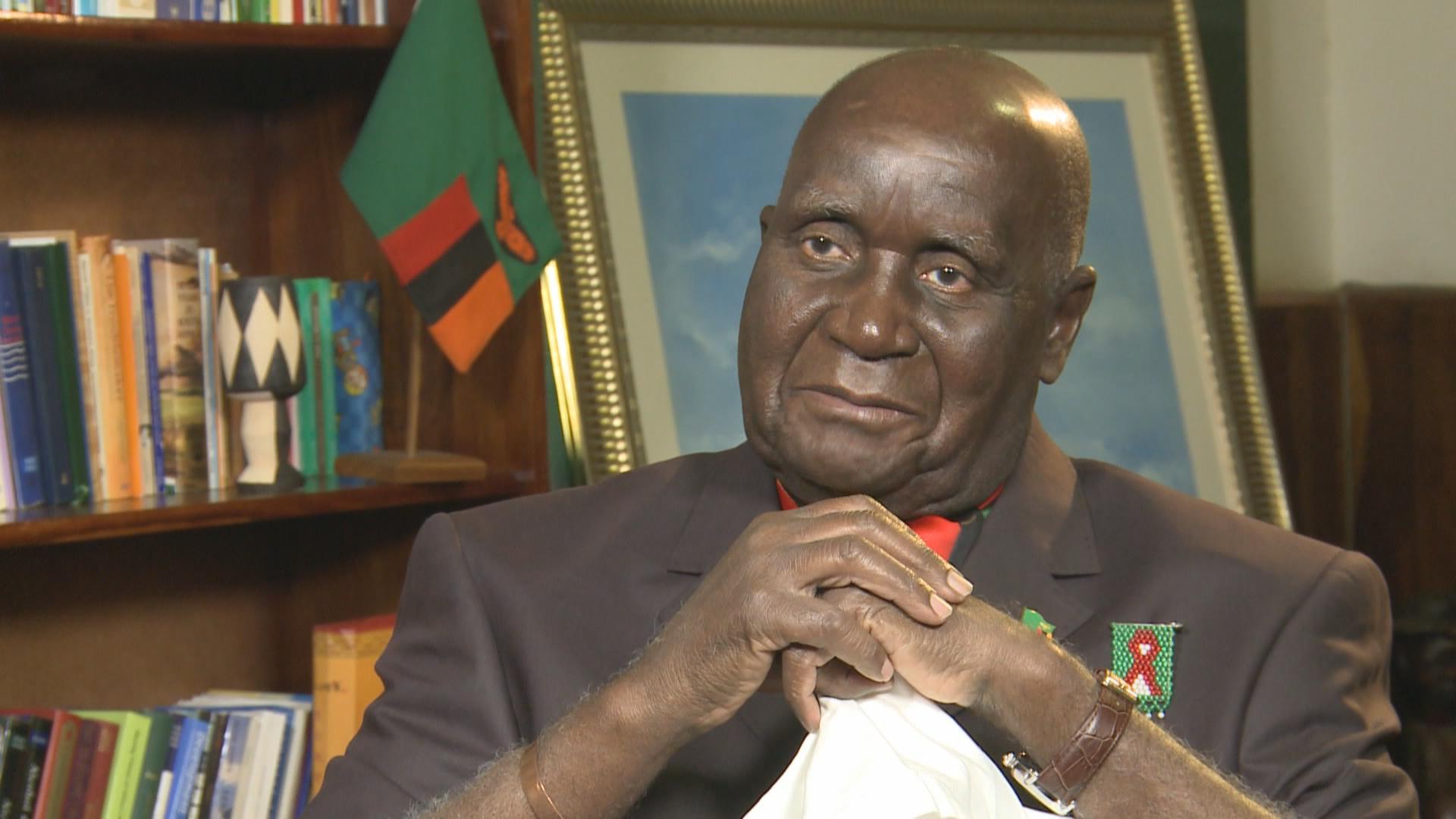Kenneth David Kaunda 1924-2021
Kaunda made the landlocked Zambia a major player in African and global politics for almost three decades.

On Thursday, June 17, 2021, Kenneth David Kaunda, founding father of Zambian independence who led his country as president for 27 years, died at the Maina Soko Military Medical Centre, Lusaka, aged 97.
President Kaunda, the last of the giants of 20th Century African Nationalism, was a champion of Africa’s struggles against apartheid and HIV/AIDS.
A very powerful personality, Kaunda made the landlocked Zambia a major player in African and global politics for almost three decades.
The last of eight children, Kaunda was born in Chinsali, Northern Rhodesia, on October 24, 1924. His father was a Presbyterian missionary teacher and his mother the first qualified African woman teacher in the country.
Following his parents’ profession, he became a head teacher before his 21st birthday, after which he moved to teach in Tanganyika (Tanzania) where he became a lifelong admirer of President Julius Nyerere whose “Ujamaa” brand of African Socialism he tried to emulate.
Returning home, Kaunda took up politics full-time, serving as Secretary General of the Northern Rhodesian African National Congress (NRANC) before being jailed two months with hard labour for distributing “subversive literature”. Upon his release, he took a more active role in politics with resultant jail terms.
For example, in June 1959, Kaunda was thrown into jail again, and while there, his colleagues, led by Mainza Chona, broke ranks with the NRANC to form the United National Independence Party (UNIP), and upon his release, he was offered the UNIP presidency.
In 1962, Britain acceded to Zambia’s self-rule, followed by full independence in 1964. Kaunda emerged the first President of Zambia after his party, UNIP, won election.
With Zambia being the first country in Southern Africa to gain independence, President Kaunda worked hard to ensure that the remaining Southern African colonies also gained majority rule.
After a failed military coup in 1990, followed by widespread riots, Kaunda became a reluctant convert to democracy. In 1991, he held the first multi-party elections, which he lost to long-time rival, trade unionist, Frederick Chiluba. However, it was to his credit that he took a bow and left government.
A much-loved father to Zambians, known for his safari suits, he waved white handkerchiefs which he pulled out to dab his eyes as he occasionally shed tears in public. He loved ballroom dancing and sang and danced to popular Zambian music. He also loved cycling, even on the streets of Lusaka, singing his own songs while doing so.
Kaunda was also greatly loved outside Zambia such that even long after he was ousted as president, he continued to be received warmly across Africa. He had his reputation intact as the charismatic president who governed under a one-party state structure but bowed out peacefully after losing an election.
A pragmatist who introduced “African Socialism”, he was quick to strike a supply-side deal with the International Monetary Fund (IMF) in 1989.
Kaunda will be remembered as a giant of the 20th Century African Nationalism, a revolutionary who at great cost gave refuge to South African liberation movements. He introduced multi-party democracy in his country. He was a diplomat who punched far above his country’s weight in world affairs.
He displayed grace under pressure, especially in the face of the humiliation he suffered in the hands of his successor, President Chiluba, who placed him under house arrest at a point and later declared him a “stateless person”.
Kaunda also displayed grace in the personal tragedies he suffered. First, he survived an assassination attempt in 1997. One of his sons, Wezzi, was shot dead in front of the family home in 1999. Another of his sons, Masuzgo, died from HIV/AIDS in 1986.
History will remember Kaunda as one who used his education, ability and every opportunity to serve his country, the continent of Africa and all oppressed people of the world. May his soul rest in perfect peace.
